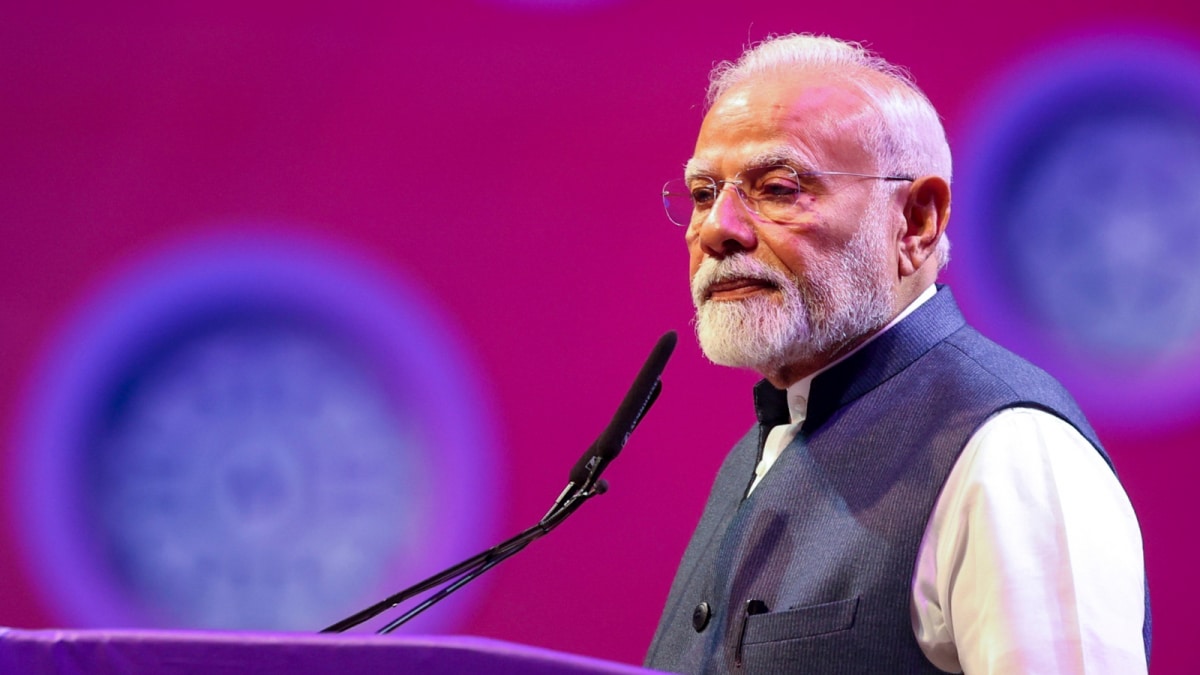Last Updated:
The approval was given by the Cabinet Committee on Economic Affairs (CCEA) chaired by the Prime Minister Narendra Modi, in a move aimed at simplification of the linkage process.

PM Narendra Modi (PTI Image)
The Cabinet Committee on Economic Affairs on Wednesday approved the revised Scheme for Harnessing and Allocating Koyala Transparently in India (SHAKTI) for allocation of coal to the power sector to help them meet long-term and short-term coal requirement.
The approval was given by the Cabinet Committee on Economic Affairs (CCEA) chaired by the Prime Minister Narendra Modi, in a move aimed at simplification of the linkage process.
The CCEA “has approved grant of fresh coal linkages to thermal power plants of central sector/state sector/independent power producers (IPPs),” the coal ministry said in a statement.
With the introduction of Revised SHAKTI (Scheme for Harnessing and Allocating Koyala Transparently in India) Policy, two windows —coal linkage to central gencos/states at notified price and coal linkage to all gencos at a premium above notified price — have been proposed.
The ministry further said ‘under coal at notified price’ segment the existing mechanism for grant of coal linkage to central sector thermal power projects (TPPs) including joint ventures (JVs) and their subsidiary will continue.
Moreover, coal linkage earmarked to states may be utilized by states in its own genco, Independent Power Producers (IPPs) to be identified through Tariff-Based Competitive Bidding (TBCB) or existing IPPs having Power Purchase Agreement (PPA) for setting up of a new expansion unit under ‘coal at notified price’ window.
Under the ‘premium over notified price’ segment, any domestic coal-based power producer having PPA or untied and also Imported coal-based power plants (if they so require) can secure coal on auction basis for a period up to 12 months or for the period of more than 12 months up to 25 years.
The Central Sector Thermal Power Projects (TPPs) shall continue to get coal linkage on nomination basis on the recommendation of Ministry of Power, whereas, the linkages earmarked to the States on nomination basis on the recommendation of Ministry of Power may be utilized by the States in the State Generating Company, the statement added.
Allowing flexible linkage for new capacity addition with or without PPA with a tenure ranging from 12 months to 25 years will encourage IPPs to plan new thermal capacities, which will help in achieving the future thermal capacity addition.
The revised policy, besides supporting brownfield expansion, will promote setting up of new thermal power projects primarily at pithead sites i.e. nearer to the coal source.
With the introduction of SHAKTI Policy, 2017, there was a paradigm shift of the coal allocation mechanism from a nomination-based regime to a more transparent way of allocation of coal linkages through an auction/tariff-based bidding. Nomination based allocation continued only for the central/state Sector power plants.
The policy was amended in 2019 on the recommendations of the Group of Ministers and was further amended in 2023. SHAKTI Policy has various paras for allocation of a coal linkage to the various categories of power plants, subject to meeting the eligibility criteria.
Central Sector thermal power projects will continue to get coal linkage on nomination basis on the recommendation of the power ministry, whereas, the linkages earmarked to the states on nomination basis on the recommendation of Ministry of Power might be utilised by the states in the state generating company.
The requirement of power purchase pact has been entirely done away for selling the electricity generated through the coal-secured under ‘premium over notified price’ category, thereby providing the power plants the flexibility to sell the electricity as per their choice.
Moreover, the imported coal-based plants can secure domestic coal under ‘premium over notified price’ segment, subject to the technical constraints of ICB (imported coal based) plants, thereby reducing their import coal dependency.
“The benefits accrued, on account of import coal substitution, would be determined by Appropriate Regulatory Commission and passed on to the electricity consumers/beneficiaries,” the statement said.
(This story has not been edited by News18 staff and is published from a syndicated news agency feed – PTI)
- First Published:





